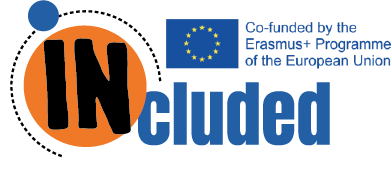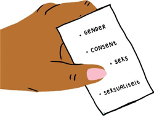Sexual health is defined by the World Health Organization (WHO) (2006) not only as the absence of disease or negative experiences regarding sexuality but also as ‘‘the possibility of having pleasurable and safe sexual experiences’’. Furthermore, the definition states that ‘‘the sexual rights of all persons must be respected, protected and fulfilled’’. Individuals with intellectual diversities are no different in this respect, and express the need and desire to form relationships, engage in sexual contact, and acquire sexual knowledge. However, access to sexual health education is limited for many youths with intellectual diversities. The INCLUDED project focused on creating materials and training that can help all actors involved in sex education: students, teachers, the school system and families, with a strong focus on students with disabilities. With the latest outcome of the project, there is the intention to support the effective implementation of these pathways by seeking support from the institutional and legislative point of view.
According to UNESCO, a Comprehensive Sex Education (CSE) is a sex-ed curriculum-based process that includes the aspects of cognitive, emotional, physical, and social levels. A CSE is important because it provides children and young people with knowledge, skills, attitudes, and values that a) empower them regarding their health, well-being, and dignity, b) prepare them to develop respectful social and sexual respectful relationships, c) make them understand and ensure the protection of their rights and respect others’ rights as well.
With the first result of the project, the INCLUDED partnership created an innovative sex education training programme, precisely in line with UNESCO’s recommendations.
The second outcome of the project was designed to support teachers and provide them with an opportunity to reflect on their role as educators, how important their influence is on students both in general and specifically in the area of sexuality and thus give them tools to consciously implement the INCLUDED sex education programme.
Furthermore, with the third outcome of the project, action was taken at an even higher level, providing a Guide for schools on how to create pathways to actively involve parents in sex education. In fact, the Guide aims to support the entire school system in the implementation of sex education and to involve parents, as informal educators, in order to create a fundamental dialogue between these two actors and promote compliance with the proposed courses and a more effective achievement of the learning outcomes, as they are shared.
All these achievements are extremely important and innovative but need fundamental support from the school authorities and the policymakers. Here comes the fourth and final result of the project: a guide to implementing a creative whole-school approach to inclusive sex-ed.
This document covers the development of policy guidelines and a detailed roadmap that are based on the experience in each partner country. More specifically, the main objective of the IO4 is to facilitate mainstreaming of holistic and positive sexuality education, and inform policy through a tried-out, beneficiary-centred, bottom-up approach regarding open educational resources that can contribute to the well-being and social inclusion of vulnerable societal groups.
Here, the experience of INCLUDED can help to identify in each country of the partnership the critical points, difficulties and barriers encountered that need the support of the authorities to be overcome. The same can be done for the strengths and qualities of the process that was done with INCLUDED and can thus be taken as an example.
The document is available and downloadable for free in all partnership languages (English, Italian, Greek, Macedonian, Dutch and Spanish) at this link: https://includedproject.eu/outputs/
NOTES TO EDITORS
- Included is co-funded by the Erasmus+ Programme of the European Commission under the Grant Agreement: Erasmus+ 2020-1-UK01-KA227-SCH-094470
- It is implemented by a partnership of seven NGOs, research institute and public entities from different European countries. To find out more about the Included project and to get involved in the activities please follow the linkincludedproject.eu

